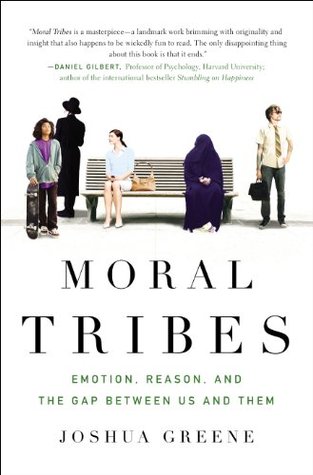More on this book
Community
Kindle Notes & Highlights
Read between
July 2 - December 5, 2020
comforts. Contrary to popular lamentation, humans are getting better and better at getting along. Violence has declined over the course of human history, including recent history, and participation in modern market economies, far from turning us into selfish bean counters, has expanded the scope of human kindness. Nevertheless, we’ve plenty of room for improvement. The twentieth century was the most peaceful on record (controlling for population growth), yet its wars and assorted political conflicts killed approximately 230 million people, laying down enough human bodies to circle the globe
...more
The idea of a universal moral philosophy is not new. It’s been a dream of moral thinkers since the Enlightenment.
More generally, it’s rare to find a cooperative enterprise in which individuals have no opportunity to favor themselves at the expense of the group. In other words, nearly all cooperative enterprises involve at least some tension between self-interest and collective interest, between Me and Us.
We now have an answer. Morality evolved as a solution to the problem of cooperation,
Morality is a set of psychological adaptations that allow otherwise selfish individuals to reap the benefits of cooperation.
Biologically speaking, humans were designed for cooperation, but only with some people. Our moral brains evolved for cooperation within groups, and perhaps only within the context of personal relationships. Our moral brains did not evolve for cooperation between groups (at least not all groups).
Evolution is an inherently competitive process:
nature never “intended.”
This suggests that our capacity for forgiveness, which tempers our negative reactive emotions, has deep biological origins, following the logic of reciprocity in an uncertain world.
But, as aggressive as we are, our aggression is nothing compared with what it could be. Under ordinary circumstances, we shudder at the thought of behaving violently toward innocent people, even total strangers, and this is most likely a crucial feature of our moral brains. (Try to imagine our world without it.)
Watching another person experience pain, for example, engages the same emotion-related neural circuits that are engaged when one experiences pain oneself, and the brains of people who report having high levels of empathy toward others exhibit this effect more strongly.
Only love provides the kind of loyalty you need in order to take the parenting plunge. Thus, love appears to be more than just an intense form of caring. It’s a highly specialized piece of psychological machinery, an emotional straitjacket that enables cooperative parenting by assuring our parenting partners that they won’t be abandoned.
Cooperation is why we’re here, and yet, at the same time, maintaining cooperation is our greatest challenge. Morality is the human brain’s answer to this challenge. (For
Out of evolutionary dirt grows the flower of human goodness.
Why do our moral brains, which are so good at averting the Tragedy of the Commons, so often fail to avert the Tragedy of Commonsense Morality?
groups can have selfish reasons for favoring some moral values over others, a phenomenon I call biased fairness.
Insofar as there is a debate about our tribalistic tendencies, it’s not about whether we have them, but about why.
As usual, all of this is done anonymously.
religion can be a source of both moral division and moral unity.
The surprising answer is that the selfish careerists did better. Bear in mind that the selfish careerists did not succeed by trampling over the seekers of justice. The selfish careerists were negotiating with each other.
the two parties diverged on climate change because this issue got politicized, forcing some people to choose between being informed by experts and being good members of their tribe.
six psychological tendencies that exacerbate intertribal conflict. First, human tribes are tribalistic, favoring Us over Them. Second, tribes have genuine disagreements about how societies should be organized, emphasizing, to different extents, the rights of individuals versus the greater good of the group. Tribal values also differ along other dimensions, such as the role of honor in prescribing responses to threats. Third, tribes have distinctive moral commitments, typically religious ones, whereby moral authority is vested in local individuals, texts, traditions, and deities that other
...more
At the start of the debate, each debater presents a “value premise,” the value that one regards as preeminent.
Next you’d argue for the preeminence of your value premise.


